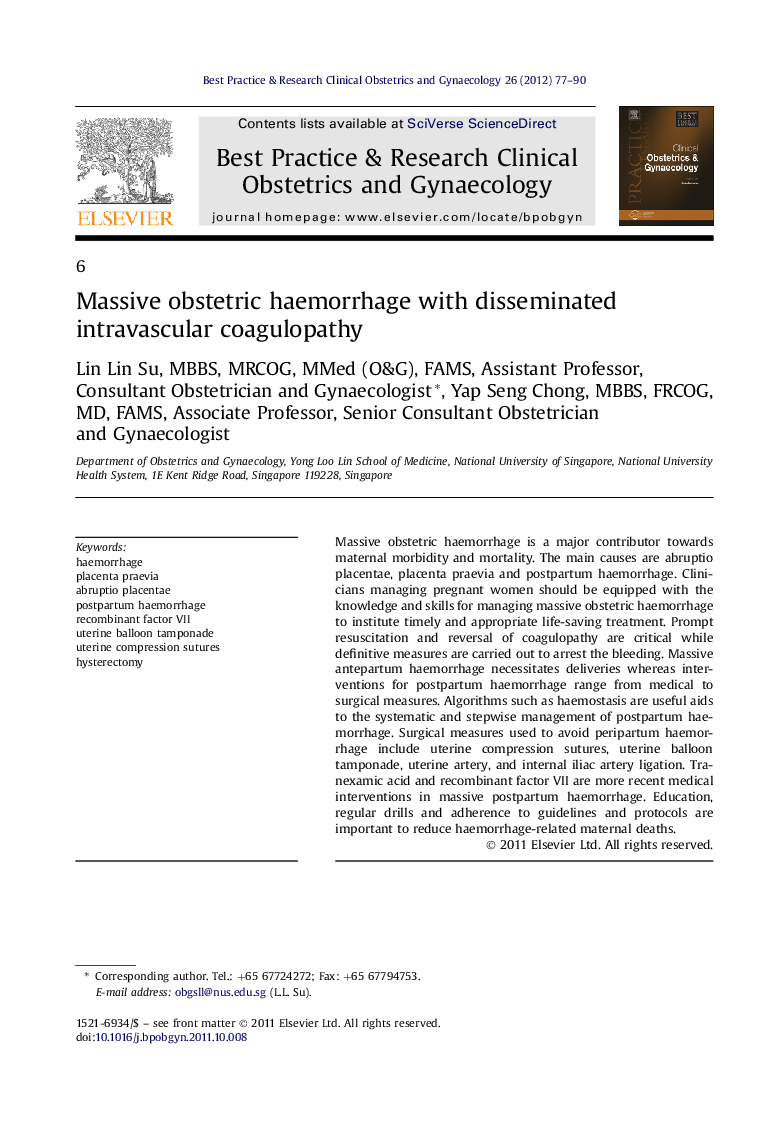| Article ID | Journal | Published Year | Pages | File Type |
|---|---|---|---|---|
| 3907427 | Best Practice & Research Clinical Obstetrics & Gynaecology | 2012 | 14 Pages |
Massive obstetric haemorrhage is a major contributor towards maternal morbidity and mortality. The main causes are abruptio placentae, placenta praevia and postpartum haemorrhage. Clinicians managing pregnant women should be equipped with the knowledge and skills for managing massive obstetric haemorrhage to institute timely and appropriate life-saving treatment. Prompt resuscitation and reversal of coagulopathy are critical while definitive measures are carried out to arrest the bleeding. Massive antepartum haemorrhage necessitates deliveries whereas interventions for postpartum haemorrhage range from medical to surgical measures. Algorithms such as haemostasis are useful aids to the systematic and stepwise management of postpartum haemorrhage. Surgical measures used to avoid peripartum haemorrhage include uterine compression sutures, uterine balloon tamponade, uterine artery, and internal iliac artery ligation. Tranexamic acid and recombinant factor VII are more recent medical interventions in massive postpartum haemorrhage. Education, regular drills and adherence to guidelines and protocols are important to reduce haemorrhage-related maternal deaths.
